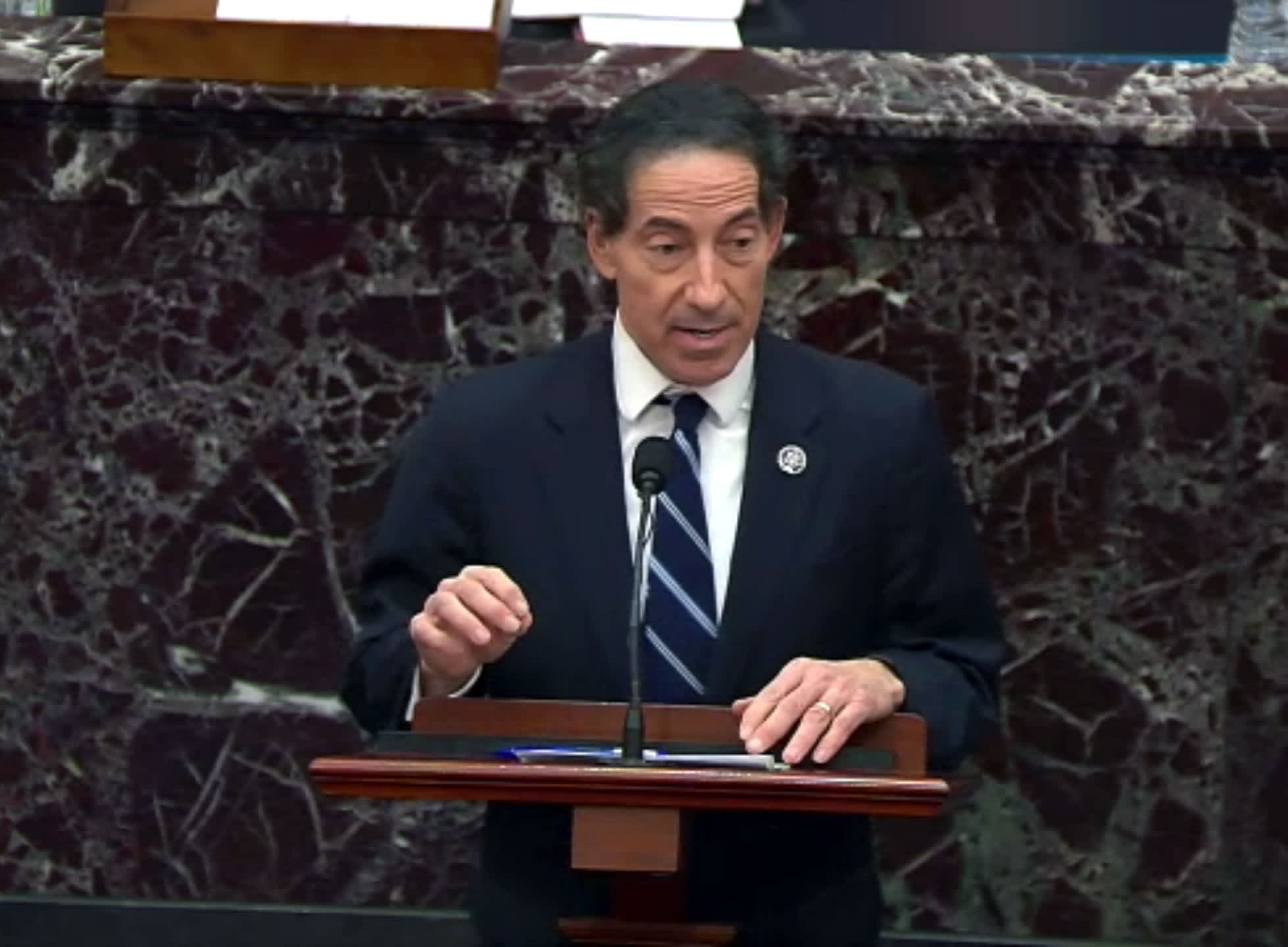
The Senate reversed course on Saturday and declined to call witnesses in former President Donald Trump’s impeachment trial, after a surprise vote allowing testimony threatened to delay the process.
After reaching an agreement to bypass calling witnesses, the House impeachment managers and Trump’s lawyers moved on to up to four hours of closing arguments. The Senate is expected to acquit the former president of inciting an insurrection later in the day.
Once it voted to allow testimony, the chamber could have with a simple majority called specific witnesses. The move by House prosecutors to seek testimony Saturday morning appeared to catch senators off guard, sending them scrambling to figure out how to proceed.
The Senate voted to allow witnesses by a 55-45 margin, as five Republicans joined all Democrats. The GOP senators were Susan Collins of Maine, Lindsey Graham of South Carolina, Lisa Murkowski of Alaska, Mitt Romney of Utah and Ben Sasse of Nebraska. While the other four Republicans are considered the most likely in their party to vote to convict Trump, Graham is a Trump ally who has coordinated with the former president’s lawyers during the trial.
But the chamber quickly backtracked and agreed to bring the trial to an end after it entered a statement from Rep. Jaime Herrera Beutler, R-Wash., into the record as evidence. Lead impeachment manager Rep. Jamie Raskin, D-Md., had called Saturday for the deposition of Beutler, who confirmed what was said on an expletive-laden call between House GOP Leader Kevin McCarthy and Trump while the Jan. 6 attack on the Capitol unfolded.
In this screenshot taken from a congress.gov webcast, lead House impeachment manager Rep. Jamie Raskin (D-MD) speaks on the fifth day of former President Donald Trump’s second impeachment trial at the U.S. Capitol on February 13, 2021 in Washington, DC.
Congress.gov | Getty Images
Beutler’s statement says Trump told McCarthy, “Well Kevin, I guess these people are more upset about the election than you are.”
Trump lawyer Michael van der Veen responded to Raskin by saying “we should close this case out today” and that the call to subpoena witnesses shows the House didn’t properly investigate the riots.
“First of all this is the proper time that we were assigned to talk about witnesses,” Raskin responded. “This is completely within the course of rules set forth by the Senate. There’s nothing remotely unusual about this.”
Throughout Friday night’s question-and-answer session, Trump’s legal team repeatedly declined to say what the former president knew about the threats to former Vice President Mike Pence’s life and when.
It led an exasperated Raskin to urge the lawyers to “bring your client up here and have him testify under oath about why he was sending out tweets denouncing the vice president of the United States while the vice president was being hunted down by a mob.”
The reversal on witnesses set the Senate on a path toward deciding by Saturday evening whether Trump incited an insurrection against the government. Only a handful of Republicans are set to join Democrats in voting to convict the former president.
Democrats would need 17 GOP senators to join them to convict Trump. They could then hold a separate vote to bar him from running for office in the future.
In his closing argument, Raskin called the evidence against Trump “overwhelming” and “irrefutable.”
“President Trump must be convicted for the safety and security of our democracy and our people,” he said.
Republicans who have signaled they will vote to acquit Trump had warned they could try to drag out the trial by calling dozens of witnesses. One GOP senator also argued the move could delay confirmation of President Joe Biden’s Cabinet and passage of Democrats’ $1.9 trillion coronavirus relief package.
The Senate has a scheduled recess next week, so it is unclear how much the trial dragging on for several more days would have disrupted the chamber’s business.
“No end in sight. This could drag on indefinitely,” tweeted GOP Sen. John Cornyn of Texas, who has opposed both the trial and the pandemic aid plan, after the vote to allow witnesses.
Democrats have rushed to boost the health-care system and economy without Republican votes before March 14, when programs buoying jobless Americans expire. Many GOP lawmakers have resisted any more federal spending to respond to the pandemic.
It was unclear whether calling witnesses would have affected the votes of any senators who had already made up their minds. Senate Minority Leader Mitch McConnell, for instance, told colleagues he would vote to acquit Trump, NBC News confirmed earlier Saturday.
The Kentucky Republican argued the chamber did not have the jurisdiction to convict a former president. The House impeached Trump when he was still president, and McConnell declined to use emergency powers to bring the Senate back before Biden’s inauguration.




